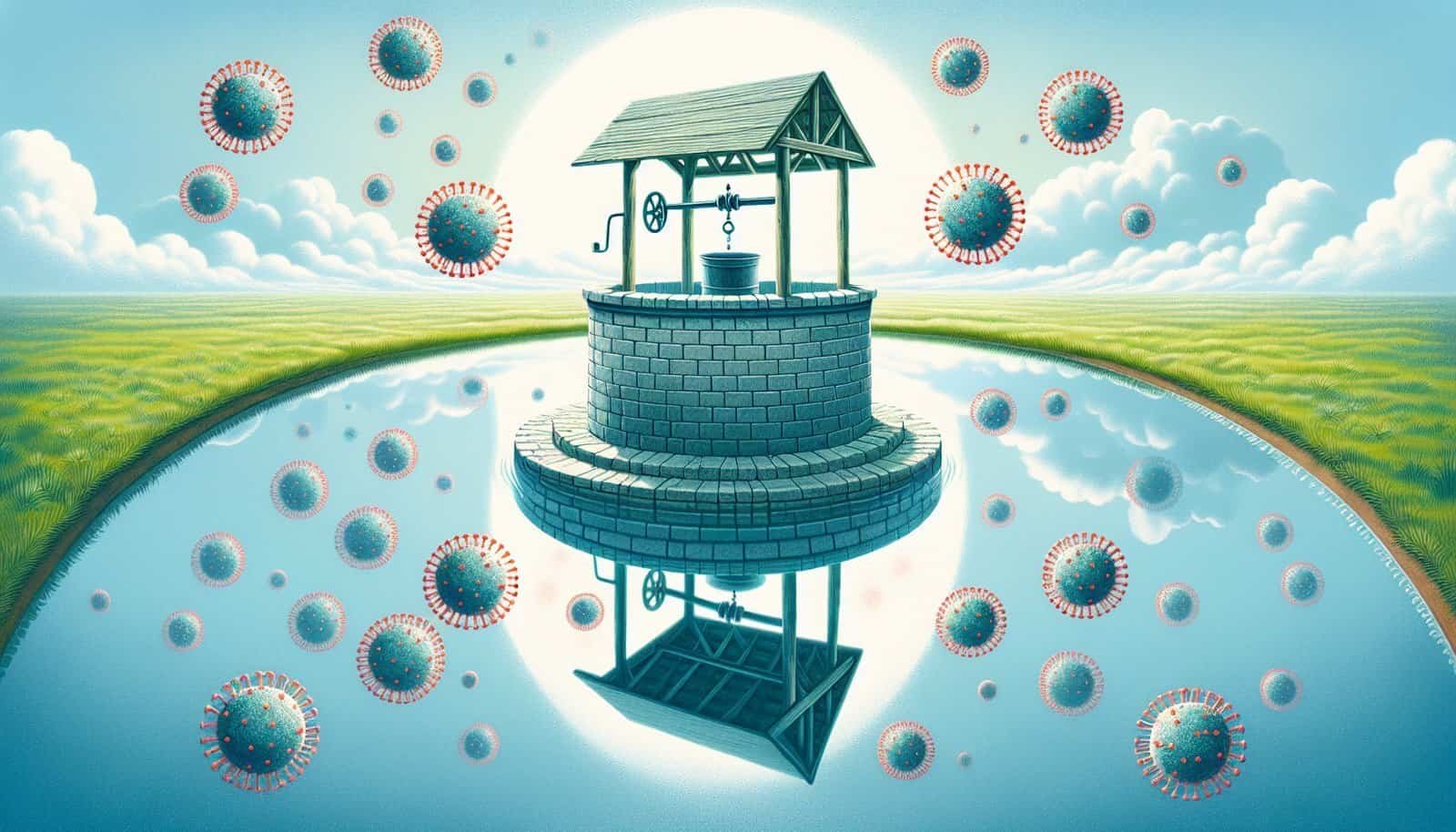Can you imagine having a well as your primary water source and suddenly wondering if it’s safe from viruses? It’s a thought that can quickly transform peace of mind into worry, especially when you consider the role of clean water in maintaining good health. As more people turn to private wells, either due to their remote lifestyle, cost considerations, or preference for natural water, the concern about water purity grows. Understanding how viruses interact with well water can be essential.
Understanding Viruses and How They Spread
Before examining their presence in well water, it’s important to have a basic understanding of viruses. Viruses are microscopic pathogens much smaller than bacteria. Unlike bacteria, they cannot survive for long periods outside a host and require a living cell to replicate. Despite their dependence on host organisms, viruses can be quite resilient under certain conditions.
How Do Viruses Spread?
Viruses spread in various ways, depending mainly on their type. Some common means include:
- Person-to-person contact: This could be through the air (like the flu) or direct contact (like the common cold).
- Contaminated surfaces: Touching a surface with viruses and then touching your face can lead to infections.
- Water Sources: Some viruses can spread through water, commonly through fecal contamination.
The Vulnerability of Well Water to Viruses
To determine if viruses can survive in well water, it’s crucial to examine how they might enter and the conditions in which they thrive. A well’s construction and the surrounding environment play pivotal roles.
Sources of Contamination
Viruses can enter well water through various sources, including:
- Surface Water: If a well is situated near lakes, rivers, or streams, surface water runoff can introduce viruses.
- Septic Systems: Poorly maintained or improperly located septic systems can leak human waste into groundwater, introducing viruses.
- Agricultural Activities: Animal waste and improper handling of livestock can lead to viral contamination.
- Environmental Events: Heavy rain or floods can wash contaminants into wells.
Conditions Favoring Viral Survival
Viruses have specific environmental preferences for survival. These include:
- Temperature: Cooler temperatures can prolong a virus’s survival outside a host. Therefore, in cooler climates, well water might retain viruses longer.
- pH Levels: Most viruses thrive in neutral to slightly alkaline conditions. Well water with a neutral pH can be more conducive.
- Organic Material: The presence of organic matter in water can provide a medium for viruses to adhere to, potentially prolonging their survival.

Detecting Viruses in Well Water
Monitoring water quality is crucial for those relying on wells for their daily water supply. But how can you know if your well contains viruses?
Testing Your Well Water
Regular testing is a proactive approach. Here’s how you can check for viruses:
- Professional Testing: Hiring a certified lab can provide detailed analyses and is recommended for accurate results.
- DIY Testing Kits: While convenient, these might not detect viruses specifically but can indicate potential contamination issues.
Interpreting Test Results
Understanding lab results is the next step. Here’s a simplified view:
| Virus Presence | Action Needed |
|---|---|
| Low | Vigilance and periodic re-testing, maintain regular sanitation routines |
| Moderate | Consider treatment solutions, assess nearby contamination sources |
| High | Immediate action needed, refrain from using water until treatment |
Effective Treatment Solutions
Finding viruses in your well water isn’t the end of the world—various treatment options can help ensure safe consumption.
Common Treatment Options
- Chlorination: Effective at killing numerous pathogens, including viruses. However, it requires correct doses and consultation for well-specific guidance.
- Ultra-violet (UV) Treatment: Uses UV light to neutralize pathogens, including viruses. It’s chemical-free and environmentally friendly.
- Filtration Systems: Some advanced filters can reduce viruses, but they must be specifically designed for this purpose.
Choosing the Right Solution
Each situation might require a different approach. Consider:
- Contamination Source: Identifying and eliminating the source reduces recurrence.
- Geographical Factors: Some methods work better in certain climatic conditions or water chemistries.

Maintaining Safe Well Water
Once treated, maintaining safe well water is paramount. So, how can regular maintenance keep problems at bay?
Regular Maintenance Practices
- Inspecting the Well Cap and Cover: Ensure they are secure and undamaged, preventing debris and organisms from entering the well.
- Testing Regularly: Establish a routine testing schedule to monitor water safety, ideally every year.
- Proper Landscaping: Ensure no debris or water runoff near the well site to prevent contamination.
Community and Expert Involvement
Engage with local health and environmental agencies. Community programs often provide resources and expert advice to help maintain water quality.
What To Do If You Suspect Contamination
If your well water seems contaminated, with unusual taste, odor, or appearance, taking immediate action is essential.
Immediate Steps to Take
- Stop Using the Water: For drinking and cooking, use bottled or alternative safe water sources.
- Seek Professional Evaluation: Local experts can help with testing and immediate remediation plans.
- Notify Local Authorities: Reporting a suspected contamination can alert others in the area and expedite a community response.
Long-term Actions
- Retest After Remediation: Ensure the issue is resolved by testing a few weeks post any treatment.
- Create a Response Plan: Develop a strategy for future potential issues, reducing anxiety and impact.

Long-term Risks and Considerations
Viruses in well water can pose long-term health risks. Understanding these can lead to more informed decisions regarding your water management practices.
Potential Health Impacts
Ingesting contaminated water can lead to various illnesses such as:
- Gastrointestinal Issues: Vomiting, diarrhea, and stomach cramps.
- Viral Infections: Hepatitis A, rotavirus, especially concerning for vulnerable groups like children and the elderly.
Environmental and Climate Considerations
Climate change might increase the likelihood of viral contamination. Warmer temperatures and more frequent flooding events can exacerbate vulnerabilities.
Legal and Policy Implications
Understanding your legal rights and responsibilities regarding well maintenance and water safety can empower better management practices. Regulations may vary locally, but staying informed can help safeguard your family’s health.
Conclusion
So, can viruses survive in well water? The answer lies in understanding the conditions and factors affecting their survival and, importantly, in what steps you take to mitigate risk. Well water can be a reliable source of safe drinking water, given proper upkeep and regular testing. Being informed, vigilant, and proactive is the best defense against potential contamination. Always remember that while nature’s resources are abundant, they require your guardianship to remain a safe and sustainable choice for you and your family.

